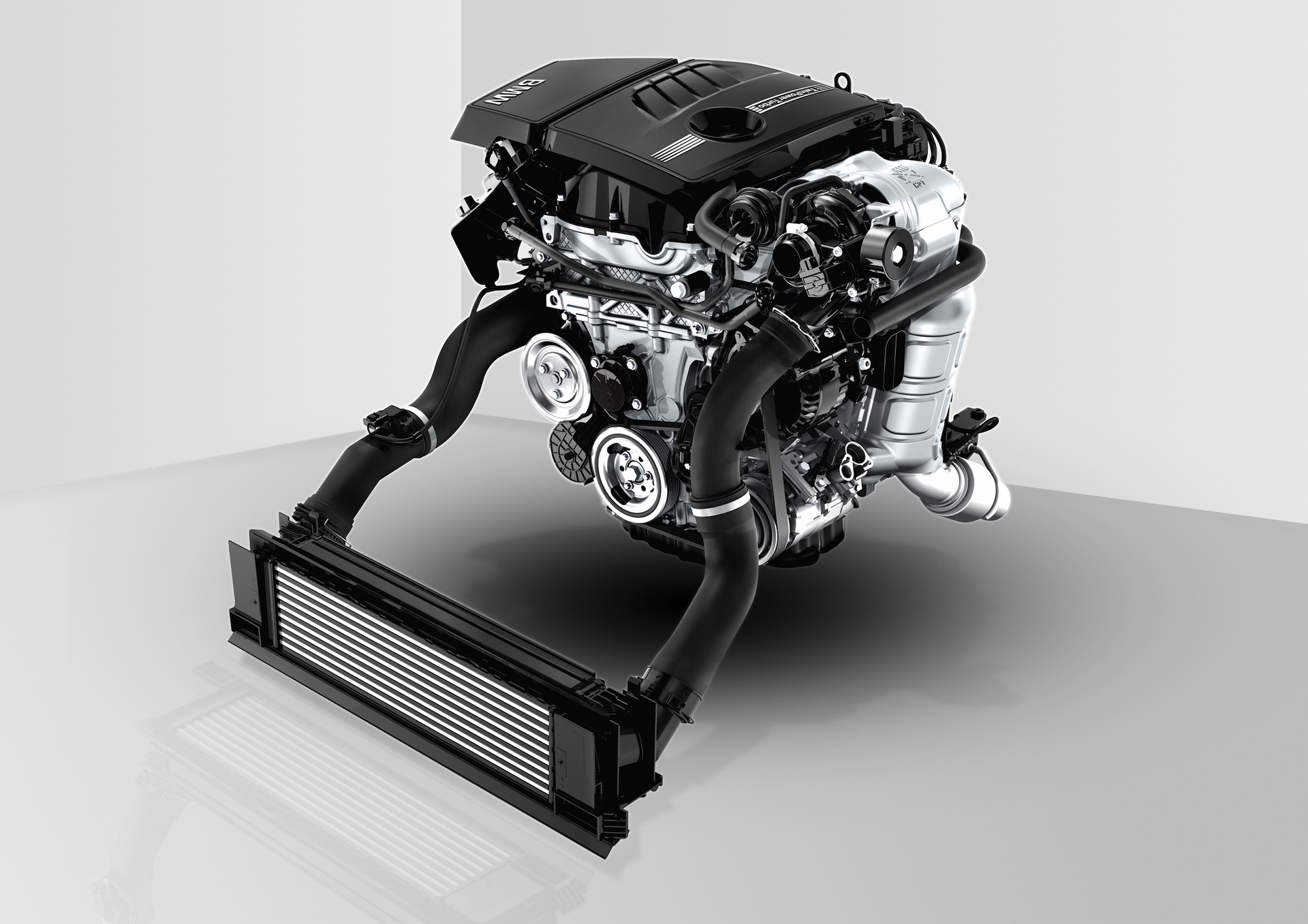
N13 vs. B38: Hangi motor daha sorunsuz?
Canlı yayınlarda sorduğunuz otomobiller arasında BMW F20 ve F30'lar başı çekiyor ve bu ikisinden birini almayı planlıyorsanız, ulaşılabilir benzinli örneklerinde karşınıza genelde bu iki motor seçeneği çıkıyor: N13 kodlu 1.6 litre 4 silindirli ve B38 kodlu 1.5 litre 3 silindirli.
N13, B38'e nazaran daha eski bir motor olduğu ve daha çok kullanıcı tarafından daha uzun dönem kullanıldığı için, sorunları daha yaygın bir şekilde biliniyor ve tartışılıyor. B38 tamamen BMW'nin kendi üretimiyken, N13 PSA ile ortak geliştirildiği için de, otomobilseverler tarafından daha sert eleştirilmeye yatkın. Bununla beraber, B38'lerin muadili N13'lere kıyasla performans açısından geriye atılan birer adım olduğu da bir gerçek.
N13
N13, BMW ve PSA (Peugeot-Citroën) ortaklığıyla geliştirilen "Prince" (THP) motor ailesinin bir parçası. 2011 yılında tanıtılan N13 1.6L 4 silindirli motor, hafif, turboşarjlı ve verimliliği yüksek bir güç ünitesi olarak tasarlandı. Twin-scroll turbo, direkt enjeksiyon, VANOS (değişken supap zamanlaması) ve VVL (değişken supap kaldırma) gibi teknolojilere sahip.
Kullanıldığı BMW ve MINI modelleri:
– 1 Serisi (F20)
- 114i (2012–2015, 102 PS)
- 116i (2011–2015, 136 PS)
- 118i (2011–2015, 170 PS)
- 120i (2015–2016, 177 PS)
– 3 Serisi (F30)
- 316i (2012–2015, 136 PS)
- 320i (2012–2015, 170 PS)
– Mini Cooper (R56), Convertible (R57), Clubman (R55)
- Cooper (2011–2014, 122 PS)
- Cooper S (2011–2014, 184 PS)
Yaygın sorun ve çözümleri:
- Zincir Zamanlaması Problemleri: Zincirin uzaması ve gergi arızaları nedeniyle yaygın. Çözüm: Eksantrik zinciri ve gergisi düzenli olarak kontrol edilmeli ve erken değişim yapılmalı.
- Soğutucu Kaçakları: Çatlamış plastik rezervuar veya su pompası arızası nedeniyle oluşabiliyor. Çözüm: Rezervuar değiştirilip su seviyesi kontrol edilmeli, önlemek için su pompası değiştirilmeli.
- Ateşleme Bobini Arızası: Ateşleme bobinlerinin erken arızalanması motorun düzensiz çalışmasına neden olabiliyor. Çözüm: Tüm bobin ve bujiler birlikte değiştirilmeli.
- Turbo Borusu Kırılması: Turbo basıncı, şarj borusunun çatlamasına neden olabiliyor. Çözüm: Güçlendirilmiş aftermarket parçalarla değiştirilmeli.
- Yağ Tüketimi: Özellikle motor yaşlandıkça yüksek yağ tüketimi yaygın. Çözüm: Yağ değişim aralıkları kısaltılmalı ve yağ seviyesi sık sık kontrol edilmeli.
- Karbon Birikimi: Direkt enjeksiyon sistemi, emme supaplarında karbon birikmesine neden olabiliyor. Çözüm: Her 80.000 km'de kurum temizliği öneriliyor.
- Su Pompası ve Termostat Arızaları: Bu bileşenlerin erken aşınması, motorun aşırı ısınmasına yol açabiliyor. Çözüm: Su pompasını her beş yılda bir değiştirmek öneriliyor.
- VANOS Solenoid Arızası: Değişken supap zamanlamasını yöneten solenoidler arızalanabiliyor ve motor arıza ışığı yakabiliyor. Çözüm: Solenoidleri değiştirmek gerekiyor.
B38
B38, BMW'nin 2013'te tanıttığı modüler motor ailesinin bir parçası olarak geliştirilen 1.5 litrelik üç silindirli bir motor. TwinPower Turbo teknolojisini kullanıyor ve tek-scroll turboşarj, direkt enjeksiyon ve değişken supap zamanlaması (VANOS) gibi özelliklere sahip. Kompakt yapısı ve düşük yakıt tüketimiyle öne çıkıyor.
Kullanıldığı BMW ve MINI modelleri:
- 2015–2019 116i, 118i (F20/F21)
- 2015–2021 218i Active Tourer (F45/F46), 318i (F30/F31 LCI), X1 sDrive18i (F48)
- 2017–günümüz 118i (F40), 218i Gran Coupé (F44), 225xe Active Tourer PHEV
- 2014–günümüz Mini Cooper (F55/F56/F57), Clubman (F54), Countryman (F60)
Yaygın sorun ve çözümleri:
- Karbon Birikimi: Direkt enjeksiyon sistemi, emme supaplarında karbon birikmesine neden olabiliyor. Çözüm: Her 80.000 km'de kurum temizliği öneriliyor.
- Su Pompası ve Termostat Arızaları: Bu bileşenlerin erken aşınması, motorun aşırı ısınmasına yol açabiliyor. Çözüm: Su pompasını her beş yılda bir değiştirmek öneriliyor.
- Turbo Çatlaması: Bakımlı araçlarda bile Continental marka turbo bir süre sonra çatlıyor. Bu sorundan ötürü 2019 sonrası turbo revize edilmiş. Çözüm: Turbo değişimi gerekli.
- Turbo Soğutma Sızıntıları: Turbo soğutma hatlarındaki O-ring'lerin zamanla bozulması sızıntılara neden olabiliyor. Çözüm: Turbo contaları düzenli olarak kontrol edilip değiştirilmeli.
- VANOS Solenoid Arızası: Değişken supap zamanlamasını yöneten solenoidler arızalanabiliyor ve motor arıza ışığı yakabiliyor. Çözüm: Solenoidleri değiştirmek gerekiyor.
- Yağ Kaçakları: Sızdıran contalar veya keçeler motor yağı sızıntısına neden olabiliyor. Çözüm: Contaları veya keçeleri değiştirip yağ seviyesini düzenli kontrol etmek gerekiyor.
Al birini...
İçten yanmalı motorlar konusundaki hüneriyle nam salmış BMW'nin, Türkiye'de en çok talep gören otomobillerinden bazılarında kullandığı iki benzinli motorun da tam anlamıyla dayanıklı olmaması ve kullanıcıların gönül rahatlığıyla bu arabaları satın alamaması çok yazık. Ülkemizin ekonomik koşulları ve sanayi ortamı göz önünde bulundurulduğunda, araç sahipleri sorunsuzluğu seçim kriterlerinde birinici sıraya koyuyor (daha doğrusu koymak zorunda kalıyor) ve maalesef bu motorların ikisi de 'sorunsuz' değil.
Bir başka sıkıntıysa, ülkemizde BMW'lerin sıklıkla bilinçsiz ve hor kullanılıyor olması. Bu nedenle hangi motoru taşırsa taşısın, ikinci el bir BMW alırken araç sahibinin profili, bakım geçmişi ve yapılan işlemlerin detayı mutlaka incelenmeli.
Peki hangisi?
Seçim noktasında, nispeten kıyıda köşede kalmış bir detayı paylaşmak lazım: F20 kasa 1 serisi 2015'te makyajlandı ama o sene, N13 kullanmaya devam etti. Dolayısıyla 177 PS'lik 1.6L dört silindirli motoruyla 2015 model 120i LCI, hem makyaj operasyonunun getirilerini arayan hem de performanslı bir otomobil bakan ve N13'ün problemleriyle nasıl başa çıkacağını bilen biri için ideal bir tercih gibi görünüyor.
Bunun dışında, üstteki modellerden birine bakan kişi:
- Eğer arabasını sadece ulaşım amaçlı kullanıyor, sollama vb. gerekli durumlar hariç gaza sonuna kadar basmıyor, yetkili serviste periyodik bakıma götürüyor, daima orijinal parça kullanıyor ve bilhassa yağ husunda aracına bilinçli bakıyorsa, bu ikisinin temiz örnekleriyle kolay kolay sorun yaşamaz ancak gene de B38 daha doğru bir tercih olacaktır.
- Eğer aracını modifiye etmeyi planlıyor, 200+ beygirler hedefliyor, kritik bileşenleri upgrade edip (su sıcaklığını aşağı çekmek için termostat yazılımı, büyük intercooler vb.) bunu da üst düzey markaların en dayanıklı parçalarını kullanarak yapacaksa, N13 daha uygun bir tercih olacaktır.
- Eğer aracıyla pist günlerine, gece roll'lara, Darlık'ta Steerr buluşmalarına katılmayı ve sıklıkla bu güzide otomobillerin limitlerini keşfetmeyi planlıyorsa, aracına ne kadar iyi bakarsa baksın, maalesef bu iki motor da doğru tercih değil.
Her sorunun bir çözümü vardır; çözmeye değer mi değmez mi, bütün mesele o.
Kaynaklar:
https://en.wikipedia.org/wiki/Prince_engine
https://en.wikipedia.org/wiki/BMW_B38_engine
https://lifeonfour.co/engine-problems/bmw-n13-engine-reliability/


12 Yorum